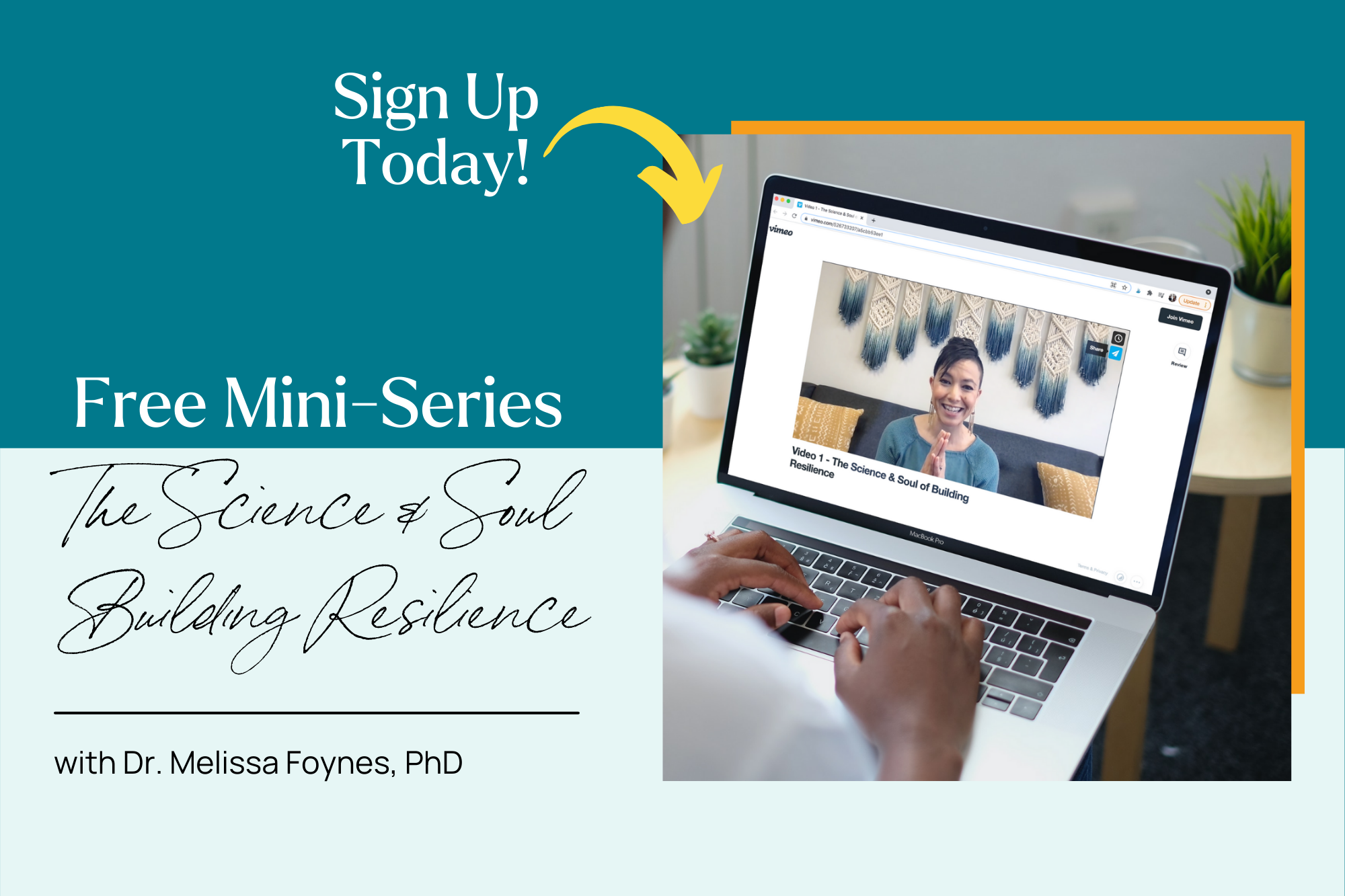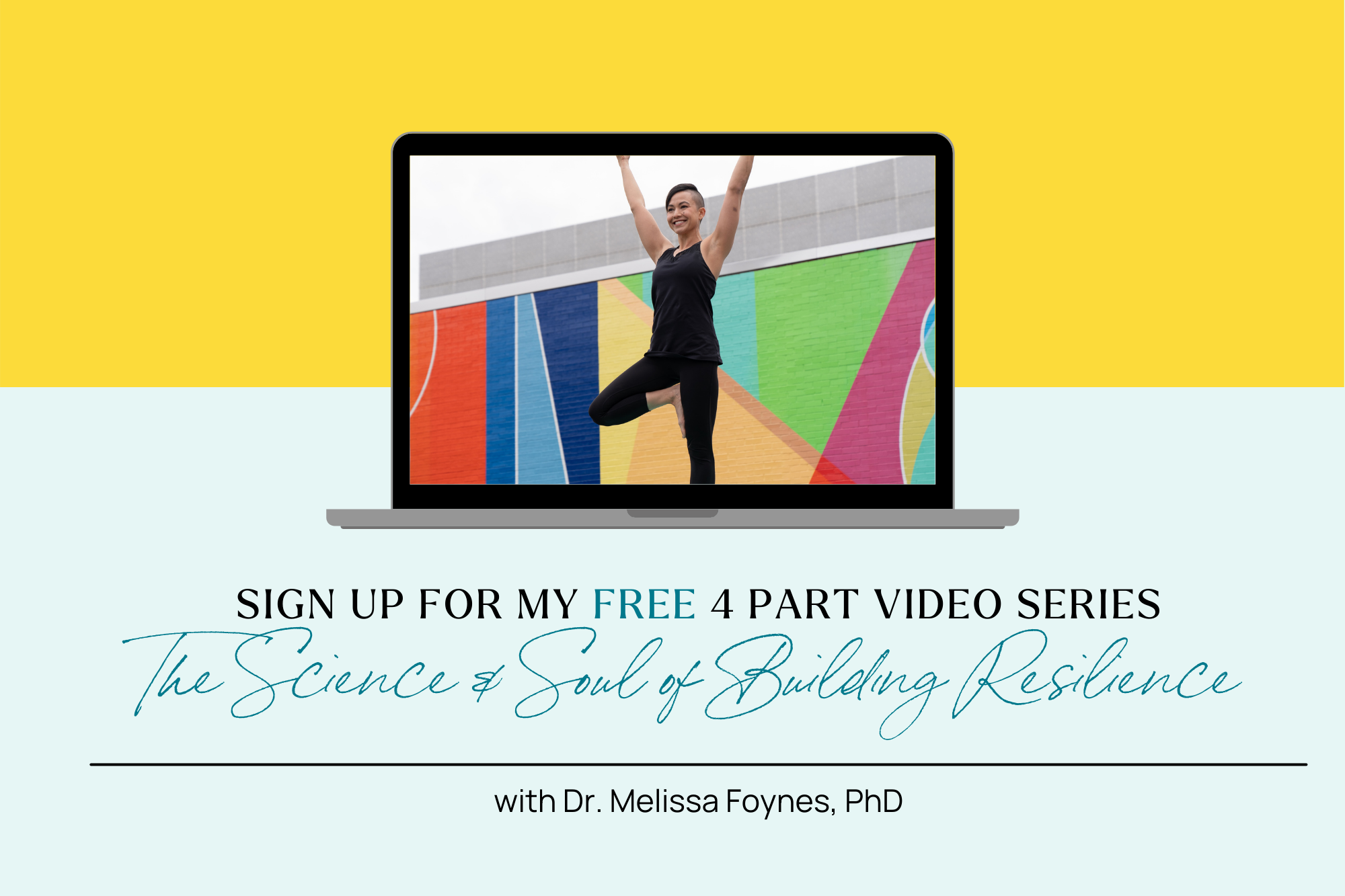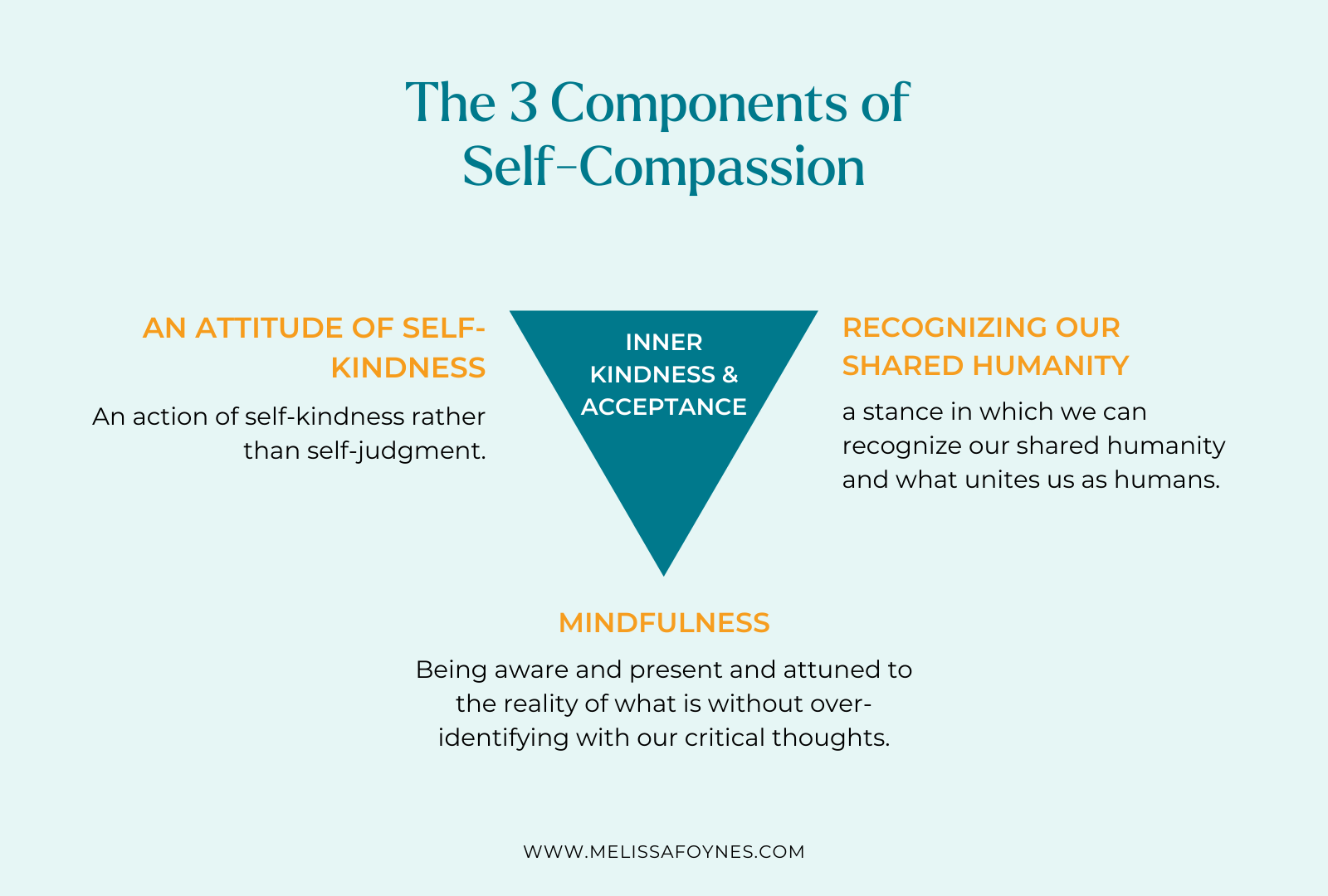welcome, I'm Melissa
Links
As a holistic coach, psychologist, mindfulness, meditation & yoga instructor, & Ayurvedic doula I offer personalized paths to growth & healing.
you may also like...
Cultivating Self-Compassion to Counteract Self-Criticism
July 1, 2021
How can you more deeply understand the ways that self-criticism shows up in your life?
There are many influences that create and perpetuate self-criticism. Understanding your relationship to self-criticism — and how it shows up in your life — is essential for creating a foundation of insight.
From this foundation of insight, you can then increase your ability to respond to self-criticism with more self-compassion — allowing the criticism to become a less dominant force in your life.
To learn how to cultivate self-compassion to counteract self-criticism, let’s explore the following topics:
-
- The roots of self-criticism and the influences that can both cause and perpetuate it
- An exploration of your relationship to criticism through an inner critic self-assessment
- A definition of self-compassion and how it can be a useful antidote to self-criticism
1. What Causes Self-Criticism?
To understand the roots of self-criticism, it’s important to consider how it develops in the first place.
Those ways include…
-
- Societal messages
- Ideals and expectations of our culture and society
- Families of origin
- Variables related to identity
- Trauma
Societal messages are those sociocultural messages that infiltrate our psyches and we internalize, sometimes consciously and sometimes unconsciously.
In the United States and many other cultures, we live in comparative cultures. We are pitted against each other, and there’s an emphasis on competition and winning.
This creates a lot of striving and an emphasis on perfectionism.
The result is that we may come to believe that our value or worth is based on what we can accomplish. And what we can accomplish — or the value of our accomplishments — is also judged by society.
Certain forms of success may be praised with words, money and popularity. So we start to get a sense of what kinds of success are going to lead to feeling love, validation and acceptance from others.
This can lead to self-criticism if we pursue those activities and accomplishments even when they don’t actually resonate with us, or if we engage in them and don’t reap the benefits we expect.
When we’re not accomplishing or producing at the rate that society says that we should, or we do something imperfectly (which is pretty much all the time because perfectionism is an illusion), we usually feel guilt and shame.
We think that we aren’t good enough, and we beat ourselves up.
There is also an emphasis on prioritizing many aspects of our being that we can’t change; these are the ideals and expectations of our culture and society that contribute to self-criticism.
For example, we are bombarded with messages about what racial and ethnic backgrounds are more preferable as well as how we need to look or who we need to be in order to be deemed attractive or worthy — based on qualities like eye shape, skin color, body shape, weight, hair, intellect and athleticism.
All of these societal ideals and standards leave room for self-criticism when we feel like we’re not measuring up.
Our families of origin, including our relationships to caregivers, siblings and extended families, affect our tendencies toward self-criticism.
People who have more positive family interactions early in life, according to some research, tend to have higher tendencies towards self-compassion.
There is a very direct link between our early experiences and the extent to which we may or may not have cultivated the skill of self-compassion. And cultivating self-compassion can help counteract self-criticism.
Certain variables related to identity — such as gender identity, sexual orientation, age, religious or spiritual values or cultural beliefs — could also affect and shape our tendencies towards both self-criticism and self-compassion.
For example, those who identify as female tend to be less self-compassionate than male-identified people. That’s a broad generalization, but it’s consistent with findings that have emerged from some of the research.
We also know that trauma affects self-criticism. Research shows that trauma tends to reduce our ability to be self-compassionate.
We may have internalized explicit and implicit messages from the person who perpetrated the trauma against us or how people responded when we disclosed trauma.
They may have criticized us or been disparaging in the context of the trauma. Or, we may judge ourselves as worthless or incapable following trauma.
Or we may have made sense of the trauma in a way that assumes blame for the trauma and leads us to criticize ourselves for the actions that we believe contributed to the trauma— even though the occurrence of the trauma had absolutely nothing to do with us.
These are just a few examples of the influences that can both create and perpetuate self-criticism.
Many of us have a false assumption that it’s impossible to be self-compassionate — or it’s difficult to be self-compassionate — unless we have high self-worth and self-confidence. That’s simply not true.
Even if you struggle with low self-worth and really harsh inner criticism, you can still have self-compassion. Self-compassion and inner criticism can coexist simultaneously.
2. How Do I Recognize My Inner Critic?
What are some of the ways that you have been shaped by culture and society? And what are some of your tender spots and tendencies when it comes to self-criticism?
The more aware you are of the subtle nuances of self-criticism, the more equipped you are to proactively respond so that self-criticism doesn’t dictate your life.
Recognizing your inner critic begins with examining your relationship to self-criticism and the glaring and subtle ways it often emerges.
Sometimes we become so habituated to self-criticism that we don’t even recognize it as such.
Taking a bit of an inventory helps to understand how self-criticism currently functions in your life.
How do patterns towards self-criticism show up for you?
Here are some questions to ask yourself:
1. Do you consider yourself highly critical or harsh with yourself? On a scale of zero to 100 (zero being no self-criticism to 100 being self-critical multiple times a day, every day), where do you fall on the spectrum?
2. In what areas of your life do you tend to judge or criticize yourself? Is it your appearance? Your work or professional identity? Your parenting? Your sex life? Your relationships? Your intelligence? How well-liked you are?
3. When you make mistakes, what emotions tend to arise? Anger? Shame? Fear?
4. When other people in your life make mistakes, how do you respond? Is it with a similar emotional pattern or a different one?
5. Think back to the last time you made a mistake or you perceived yourself as having made a mistake. What were some of the thoughts that ran through your head?
6. When you make mistakes — or do something that feels like a misstep — do you tend to catastrophize? Do you tend to assume the worst-case scenario is going to happen next or make broad generalizations about yourself?
7. Have you foregone important opportunities or not taken certain risks? If so, why? How have these choices affected your sense of self-confidence and self-worth?
8. How do you respond to criticism from other people? Do you take it as 100% true immediately?
9. Do you go to great lengths to avoid criticism by not being vulnerable? Or by people-pleasing to be well-liked even if at a great cost to yourself?
Your responses to these questions can help you get a sense of how self-criticism shows up for you.
Remember that none of us can be entirely free of self-criticism; it’s more noticing and making space for it.
Our ability to make space for self-criticism in our lives — and responding to self-criticism by cultivating self-compassion — not only directly benefits us but can also help increase our ability to tolerate criticism from others in a more wise and grounded way.
RELATED: SIGN UP FOR OUR FREE 4-PART VIDEO SERIES…
THE SCIENCE AND SOUL OF BUILDING RESILIENCE
LEARN MORE HERE!
3. What Is Self-Compassion and Why Is It Important?
Self-compassion is an evidence-based practice that can be extremely helpful as an antidote to self-criticism.
And part of having a self-compassionate stance towards self-criticism involves developing insight in the ways I’ve already mentioned: understanding its roots, how it emerged, why it’s here, how it gets perpetuated and the functions that it serves.
Psychologists Kristen Neff and Christopher Germer have extensively researched self-compassion.
Neff refers to self-compassion as a clear seeing of our own suffering — a caring response to our own suffering that includes the desire to help ourselves and recognizes that suffering is part of the human condition.
Suffering can refer to any amount of pain or discomfort, however big or small.
Neff points out that compassion isn’t something we need to earn; it’s our birthright. It’s something we are entitled to by virtue of being human.
All human beings want to be happy rather than to suffer, and we all have an intrinsic value and deserve to not suffer.
So compassion is deserved — both when we are responsible for our own suffering through our mistakes as well as when we are in circumstances through no fault of our own.
It’s not as though we only deserve compassion, or are entitled to compassion from other people and ourselves, when we have found ourselves in circumstances that aren’t our fault.
Compassion and self-compassion are relevant even when we are responsible for some of the suffering in our lives.
And self-compassion is unconditional. It’s an unconditional self-acceptance, an inner kindness that we bring to the table, especially in moments of failure.
In their research, Neff and Germer break down self-compassion into three main components:
The 3 Components of Self-Compassion…
-
- The first component is an attitude of self-kindness, an action of self-kindness rather than self-judgment.
- The second part of self-compassion is a stance in which we can recognize our shared humanity and what unites us as humans.
- And the third is mindfulness, being aware and present and attuned to the reality of what is without over-identifying with our critical thoughts.
So self-compassion is about treating ourselves as inner allies rather than inner enemies.
By cultivating self-compassion, we understand that we made a mistake and are hurt by it rather than thinking about how awful we are for having made that mistake.
Self-compassion can also motivate us. Many people think that we will become lazy if we’re too self-compassionate.
On the contrary, self-compassion motivates us through support and encouragement rather than fear and shame.
We also know that self-compassion is linked to reductions in depression, anxiety and shame, and that it increases happiness and life satisfaction. And self-compassion is associated with fewer problems related to striving for self-esteem.
When we have higher self-compassion, there’s also a reduced risk of caregiver burnout. And self-compassion is also a mechanism of change in therapy.
The practice of counteracting self-criticism is important because self-criticism thwarts our ability to love ourselves and to receive — and internalize — love from other people.
Cultivating self-compassion is an important practice in overcoming self-criticism.
Cultivating Self-Compassion: Next Steps
For further assistance in exploring the roots of your self-criticism and taking action steps to discover the power of self-compassion, you can do the following:
-
- Listen to the full podcast episode…
Understanding Our Inner Critics: The Power of Insight & Compassion
You may also enjoy the companion podcast:
Holistic Strategies for Coping with Self-Criticism

You can also learn more about my coaching practice through this free video series:
The Science & Soul of Building Resilience
In this 4-part series you’ll learn:
- Body awareness to help us center ourselves and live in a present-focused and embodied way even in the midst of stress
- Decreasing our stress response so we can access intuition and connect to our needs
- Values clarification to guide decisions about prioritizing our time, attention and energy
- Self-compassion to soften our harsh inner critics and facilitate growth following mistakes
SIGN UP to Get Instant Access!
MAKE SURE TO SUBSCRIBE TO THE SCIENCE & SOUL OF LIVING WELL PODCAST!
Apple | Google | Spotify | iHeart | Audible
You can also contact me or join us on Instagram – @drfoynes.
Related Articles on Changing Limiting Patterns and Habits:
Freebie Alert!
Freebie Alert!
Newsletter
Sign up to get a dose of love, inspiration, wisdom &
all the latest news on events straight to your inbox.
privacy
terms
made with ❤ by habitat society
Explore
©2022, Melissa foynes
Thank you
You're subscribed to my newsletter. Please whitelist my email to make sure you don't missing anything I send you.


